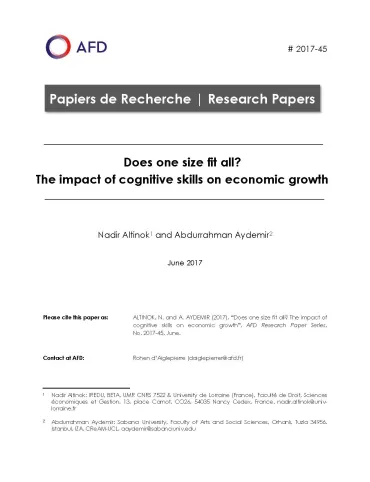Share the page
Does one size fit all? The impact of cognitive skills on economic growth
Published on

This paper tests for heterogeneous effects of cognitive skills on economic growth across countries. Using a new extended dataset on cognitive skills and controlling for potential endogeneity, we find that the magnitude of the effect is about 60% higher for low-income countries compared to high-income countries, and it more than doubles when low TFP countries are compared to high TFP countries. There are also marked differences across geographic regions. Using data on the share of the population with advanced and minimum skill levels, our results also indicate that high-income countries should focus on increasing the number of high skilled human capital, while countries from Sub-Saharan Africa would benefit more by investing in the development of basic skills.
Useful Information
-
Authors
-
Nadir ALTINOK, Abdurrahman AYDEMIR
-
Coordinators
-
Rohen d’Aiglepierre
-
Edition
-
45
-
Number of pages
-
45
-
ISSN
-
2492 - 2846
-
Collection
-
Research Papers
